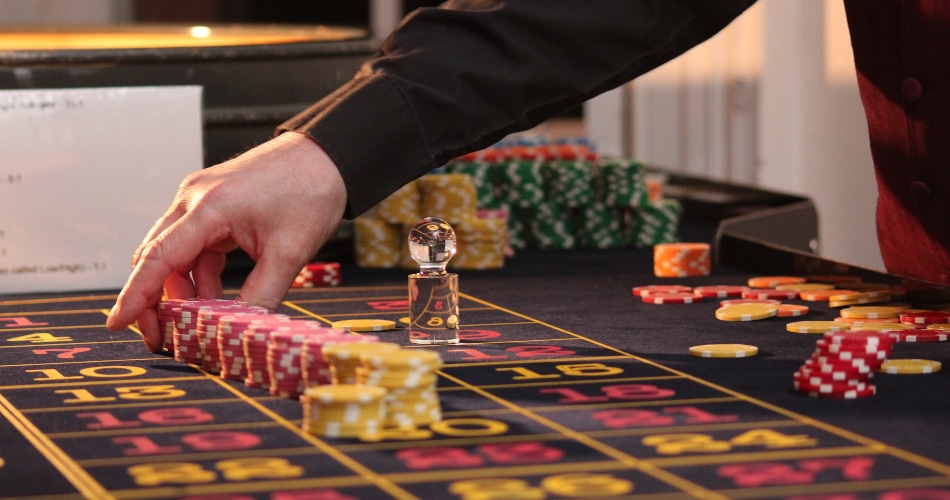
The Betting and Gaming Council (BGC) has praised the reopening of betting shops in Scotland but has called on the Scottish Government to allow casino venues to reopen too.
Last month, 11 council areas in Scotland moved to tier-four restrictions of Scotland’s five-tier COVID system. As a result, all non-essential businesses, including around 400 betting shops, were forced to close for three weeks from November 20th.
The regions moved down a tier-level last Friday, and the restrictions were lifted, allowing all non-essential businesses including betting shops to reopen. As reported by iGamingBusiness, despite the move in tiers, casinos have been forced to remain close.
In a new post on the Betting and Gaming Council website, the organisation has praised Scotland’s decision in reopening betting shops but urged its Government to allow casino venues to follow suit.
The BGC’s post described the reopening of betting shops as a “huge boost” for the 2000 people who work in the industry, for the UK economy, and for the horse racing industry as betting shops pay £50 million a year in tax to the Treasury and £13.5 million to horse racing.
However, the BGC also urged the Scottish Government to allow all casino venues in the country to reopen under the same tier-three restrictions betting shops have been allowed to open under, citing how all venues have imposed tight anti-COVID measures.
BGC Chief Executive Michael Dugher said: “It’s great news for staff and customers that betting shops can open their doors again.
“They have introduced a range of anti-Covid measures, including Perspex screens, hand sanitisers and strict social distancing rules, so they are a safe environment for people to work and enjoy a bet. But so have casinos, so they should be able to safely open their doors again as well.”
Discussing the financial contribution casinos make to the country and the UK as a whole, Dugher continued: “The economic contribution betting shops – and casinos – make in terms of tax paid to the Treasury, as well as the jobs they provide, will be vital as the UK recovers from the impact of the pandemic.
“Betting shops’ contribution to horse racing – which has suffered financially as a result of the ban on spectators – also cannot be overstated. Scotland’s five racecourses have taken a huge hit due to the pandemic, and we are delighted that revenue from shops can now flow through to the racing industry.”
The news comes as rumours of London entering tier-three restrictions heighten due to a rising number of Coronavirus cases. If London and other English regions with high infection numbers enter a higher tier of restrictions, casinos and betting shops could once again be required to close.
The news comes after Scottish MP Ronnie Cowan has issued a warning to parents, urging them to avoid purchasing video games with loot boxes, mechanics which have been compared to gambling for requiring players to purchase boxes of rewards with real money without knowing what’s inside them.
Cowan, the Vice-Chair of Westminster’s Committee on Gambling-Related Harm, said that the loot box in-game purchases are dangerous as they can fuel gambling addiction among children.
Loot boxes are prevalent among many popular video games including Fortnite, FIFA, and Overwatch among others, and the mechanic has been incredibly controversial, with many European countries forcing developers to remove the mechanics from their games.
Loot boxes are not regulated under gambling in the UK, but in June 2020 the Department for Digital, Culture, Media and Sport (DCMS) began requesting evidence from video game companies in relation to loot boxes as part of an investigation into the mechanic and whether it should be regulated.
In a statement to the Daily Record, Cowan said it was “shocking” that games featuring loot boxes aren’t required to disclose so on their packaging or websites, and called for the outright removal of the mechanic from games released in the country.
He said: “While I’d welcome this mandatory addition to packaging, I’d rather see all gambling elements removed from games.
“The obvious danger is that they normalise gambling in a young audience and that increases their likelihood to gamble later in life with a reduced awareness to the potential harm.”
He then issued a warning to any parents considering to buy video games for their child for Christmas, saying: “I’d like to urge parents to think twice this Christmas about buying video games for teenagers which contain loot boxes and in-game purchases.
“The gaming industry shouldn’t be a vehicle to groom young adults for the gambling industry to exploit later in life.”
The UK Government is currently carrying out a review of the Gambling Act 2005, which will examine current rules and regulations regarding gambling in the digital and online age. Loot boxes will also be analysed as part of the review in addition to its ongoing review by the DCMS.
Speaking about the Gambling Act review, Cowan said: “The Gambling Act in its current form is outdated and in need of a major overhaul. I hope the forthcoming review is not watered down to placate the gambling lobby or fails to properly address gambling-related harm.”
Cowan’s comments come after the Gambling Health Alliance group (GHA) called for lot boxes to be classed a form of gambling and banned from video games with an age rating of under 18.
GHA Chairman Duncan Stephenson said of loot boxes: “Our latest research suggests video games have slowly and steadily been polluted with gambling features and the law has simply not kept pace.
“Many young people today face a gamble every time they log on to play their favourite game, and we’re concerned that this could very well normalise gambling for a generation of young people.”
He added: “Video gaming is a fun activity for many, particularly during lockdown. But the view from gamers is very clear – the overwhelming majority regard the presence of loot boxes as a form of gambling.”